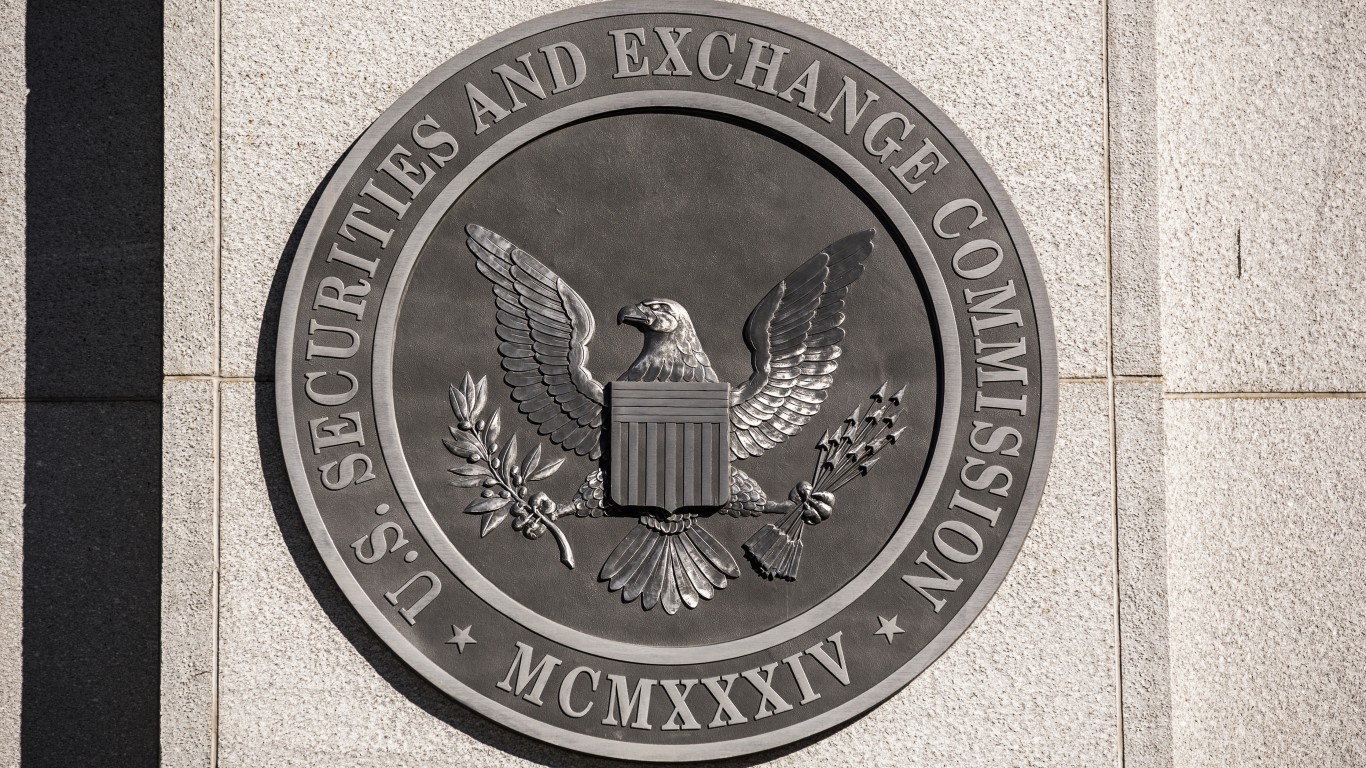
In 2020, 64 special purpose acquisition companies (SPACs), or blank-check companies, combined with venture-funded companies to come public in mergers that left the venture company with a pocketful of cash and a listing on a U.S. exchange. The SPAC sponsors made a small fortune as well, generally by holding on to a big chunk of the stock issued at the time of the merger.
The U.S. Securities and Exchange Commission (SEC) is taking steps to curb investors’ enthusiasm for SPACs, or at least try to tap the brakes a bit. In a staff statement released Monday, the SEC said it had been evaluating the way SPACs account for warrants issued when the SPAC is created and launches its own initial public offering.
[in-text-ad]
Why is the SEC doing this now? Here’s what the agency said:
We are issuing this statement to highlight the potential accounting implications of certain terms that may be common in warrants included in SPAC transactions and to discuss the financial reporting considerations that apply if a registrant and its auditors determine there is an error in any previously-filed financial statements.
The key word here is “error.” As in, restating results, leading to all sorts of nasty effects on the stock price.
There are two types of accounting considerations warrant-issuing firms like SPACs need to keep in mind, the SEC said. Both types relate to whether SPAC-issued warrants should be classified as an asset or a liability. The SEC evaluated two “fact patterns” that both concluded that SPAC warrants should be classified as a liability.
Then comes the money portion of the SEC’s statement:
If, after considering this statement, a registrant and its independent auditors conclude that there is an error in previously-filed financial statements, the registrant would then need to evaluate the materiality of the error.
If the error is material, “The Securities Exchange Act of 1934 requires a registrant to file materially complete and accurate reports with the Commission.” In other words, restate the SPAC’s quarterly earnings reports.
Since the Biden administration took over, the SEC has been putting SPACs on notice that there’s a new sheriff in town. The SEC in late March issued a statement on the financial reporting and auditing considerations a target company should consider when merging with a SPAC.
Last week, John Coates, acting director of the SEC’s division of corporate finance, stated the obvious about the safe-harbor statements many companies, including SPACs, depend on to limit their liability for being overly optimistic:
Even if the safe harbor clearly applies, its procedural and substantive provisions do not protect against false or misleading statements made with actual knowledge that the statement was false or misleading. A company in possession of multiple sets of projections that are based on reasonable assumptions, reflecting different scenarios of how the company’s future may unfold, would be on shaky ground if it only disclosed favorable projections and omitted disclosure of equally reliable but unfavorable projections, regardless of the liability framework later used by courts to assess the disclosures.
According to a count from StockMarketMBA.com, there are currently 493 SPACs that either have a deal in the works or are actively looking for one. A total of 248 SPAC IPOs were launched last year, raising $83 billion that the SPACs could use to acquire another company, according to a report in the Harvard Business Review.
Last year, some 104 SPAC business combinations (reverse mergers) were completed. So far in 2021, 27 combinations have been completed. That looks likely to slow down, though, and not entirely because of the SEC. Rising bond yields have slowed down the IPO market in general, and with so many SPACs still chasing a deal, there aren’t enough pre-IPO companies to go around.
That may be the worst news of all for SPAC sponsors. Most have raised their funds with a promise to do a deal in 24 months or return investors’ money. No SPAC wants that to happen.
In 20 Years, I Haven’t Seen A Cash Back Card This Good
After two decades of reviewing financial products I haven’t seen anything like this. Credit card companies are at war, handing out free rewards and benefits to win the best customers.
A good cash back card can be worth thousands of dollars a year in free money, not to mention other perks like travel, insurance, and access to fancy lounges.
Our top pick today pays up to 5% cash back, a $200 bonus on top, and $0 annual fee. Click here to apply before they stop offering rewards this generous.
Flywheel Publishing has partnered with CardRatings for our coverage of credit card products. Flywheel Publishing and CardRatings may receive a commission from card issuers.
Thank you for reading! Have some feedback for us?
Contact the 24/7 Wall St. editorial team.





